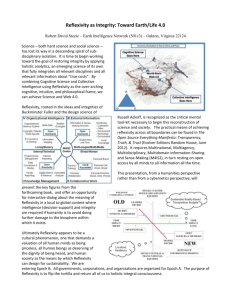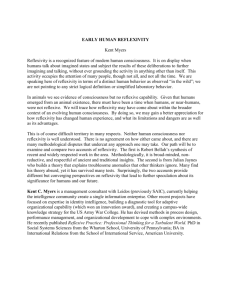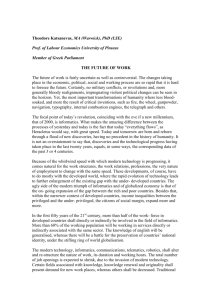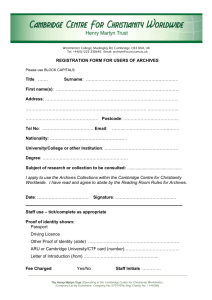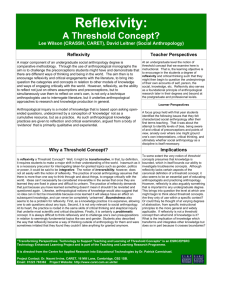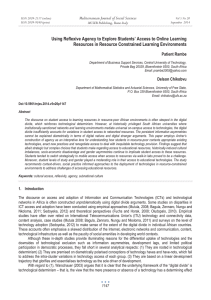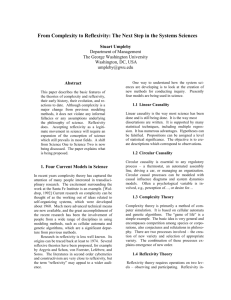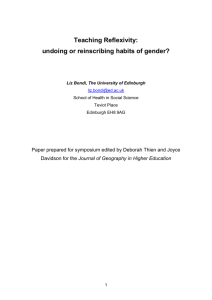Professional education as if social relations mattered
advertisement
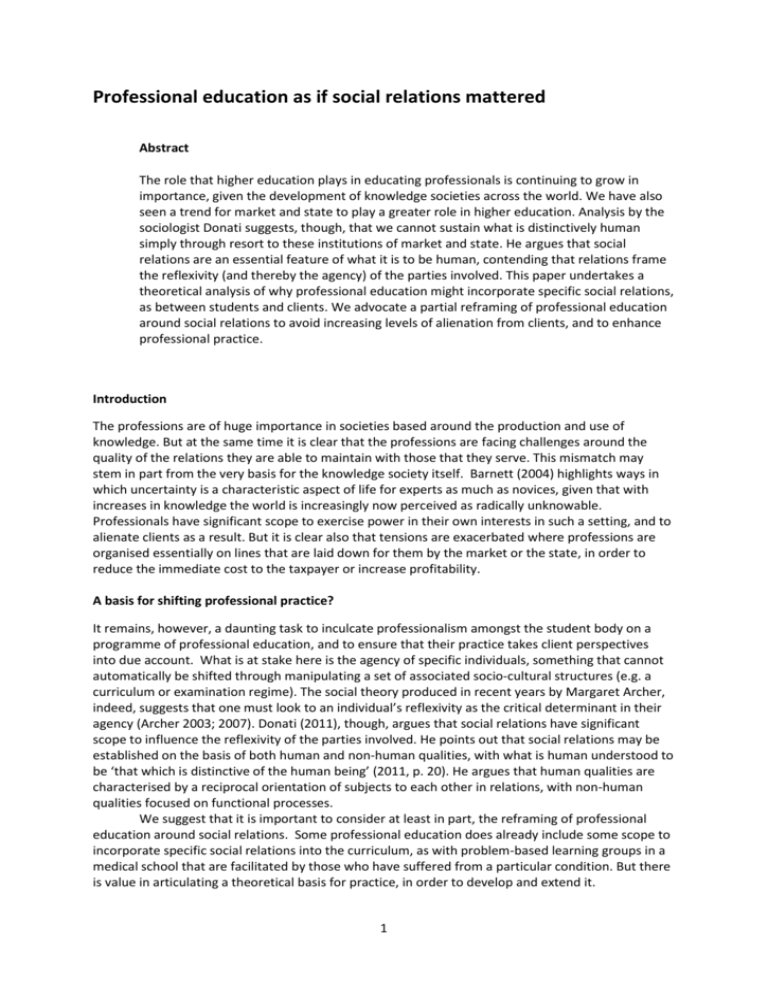
Professional education as if social relations mattered Abstract The role that higher education plays in educating professionals is continuing to grow in importance, given the development of knowledge societies across the world. We have also seen a trend for market and state to play a greater role in higher education. Analysis by the sociologist Donati suggests, though, that we cannot sustain what is distinctively human simply through resort to these institutions of market and state. He argues that social relations are an essential feature of what it is to be human, contending that relations frame the reflexivity (and thereby the agency) of the parties involved. This paper undertakes a theoretical analysis of why professional education might incorporate specific social relations, as between students and clients. We advocate a partial reframing of professional education around social relations to avoid increasing levels of alienation from clients, and to enhance professional practice. Introduction The professions are of huge importance in societies based around the production and use of knowledge. But at the same time it is clear that the professions are facing challenges around the quality of the relations they are able to maintain with those that they serve. This mismatch may stem in part from the very basis for the knowledge society itself. Barnett (2004) highlights ways in which uncertainty is a characteristic aspect of life for experts as much as novices, given that with increases in knowledge the world is increasingly now perceived as radically unknowable. Professionals have significant scope to exercise power in their own interests in such a setting, and to alienate clients as a result. But it is clear also that tensions are exacerbated where professions are organised essentially on lines that are laid down for them by the market or the state, in order to reduce the immediate cost to the taxpayer or increase profitability. A basis for shifting professional practice? It remains, however, a daunting task to inculcate professionalism amongst the student body on a programme of professional education, and to ensure that their practice takes client perspectives into due account. What is at stake here is the agency of specific individuals, something that cannot automatically be shifted through manipulating a set of associated socio-cultural structures (e.g. a curriculum or examination regime). The social theory produced in recent years by Margaret Archer, indeed, suggests that one must look to an individual’s reflexivity as the critical determinant in their agency (Archer 2003; 2007). Donati (2011), though, argues that social relations have significant scope to influence the reflexivity of the parties involved. He points out that social relations may be established on the basis of both human and non-human qualities, with what is human understood to be ‘that which is distinctive of the human being’ (2011, p. 20). He argues that human qualities are characterised by a reciprocal orientation of subjects to each other in relations, with non-human qualities focused on functional processes. We suggest that it is important to consider at least in part, the reframing of professional education around social relations. Some professional education does already include some scope to incorporate specific social relations into the curriculum, as with problem-based learning groups in a medical school that are facilitated by those who have suffered from a particular condition. But there is value in articulating a theoretical basis for practice, in order to develop and extend it. 1 Integrating relations into professional education Professionalism necessitates a way of thinking and understanding that frames practice, one in which the perspectives of those served play an important role. This is especially so in professions which involve a direct function in relation to others, as with health care, education, management and others. If relations orient the reflexivity of the parties involved, and thereby influence their actions, then the establishment of a relation across two different sets of perspectives offers great potential. Brockbank and McGill (2007) also argue powerfully that reflective practice is effectively founded on a social rather than purely individual basis on such grounds. Is it really possible to understand a client’s perspectives when one becomes accustomed to decision-making processes that focus on one’s own concerns and the profitability of the function entailed? There is scope to include a range of reciprocal relations within professional education, as between students and peers, clients, employers, experts, client activists and so on. The quality of the social relations involved could become as much a focus for planning as any attempt to specify intended learning outcomes. The strength of a relation will be affected by residential arrangements, cohesiveness of the student cohort or the use of technology. One might expect to see enhanced levels of student engagement, as the novice professional realises more completely ways in which others benefit from their professional practice. Shifting the nature of professional practice There is a range of ways in which such a focus on social relations could affect professional practice. Integrating social relations into professional education offers an effective means to bolster the moral basis for professional practice. MacIntyre (1981) argues that one cannot expect virtue to thrive in the absence of more stable relationships given that they are mutually constitutive. Indeed, such consideration of others is a central feature of social justice more widely. What we see, furthermore, is that social relations provide a basis for the reflexivity that underpins corporate agency; Archer (2000). The nature of professional practice shifts when a client and professional act together. In medicine, for instance, the response of the patient is often a key factor in treatment. There would also be the scope for benefits felt more directly within the profession itself in terms of its capacity to agree genuinely common standards or forms of practice, taking one beyond a reliance on formal codes of practice in order to effect this. Finally, we would suggest that it is important to consider ways in which the goods that are associated with professional work are distributed to society in ways that reach beyond the interests of market, state and the professionals involved. In the longer term professional education based more directly on social relations could influence the profile of those individuals entering the professions, as individuals increasingly identify with a profession and thus are prepared to enter it. Our argument adverts to the scale of the challenge that is evident in ensuring fair access to the professions. Conclusions It is essential that professional education takes into account a wide range of goods and the perspectives of all stakeholders. The challenge here is to organise professional education on a more fully human basis rather than merely functional basis. We offer in this paper theoretical grounds on which to develop professional education. Things could indeed be otherwise in both the professions and professional education if social relations mattered. 2 References Archer, M.S., 2000. Being human: The problem of agency, Cambridge: Cambridge University Press. Archer, M.S., 2007. Making our way through the world: Human reflexivity and social mobility, Cambridge: Cambridge University Press. Archer, M.S., 2003. Structure, agency and the internal conversation, Cambridge: Cambridge University Press. Barnett, R., 2004. Learning for an unknown future. Higher Education Research & Development, 23(3), pp.247–260. Brockbank, A. & McGill, I., 2007. Facilitating Reflective Learning in Higher Education, McGraw-Hill International. Donati, P., 2011. Relational sociology: a new paradigm for the social sciences, London: Routledge. Maclntyre, A., 1981. After virtue: A study in moral theory, London: Duckworth. 3

